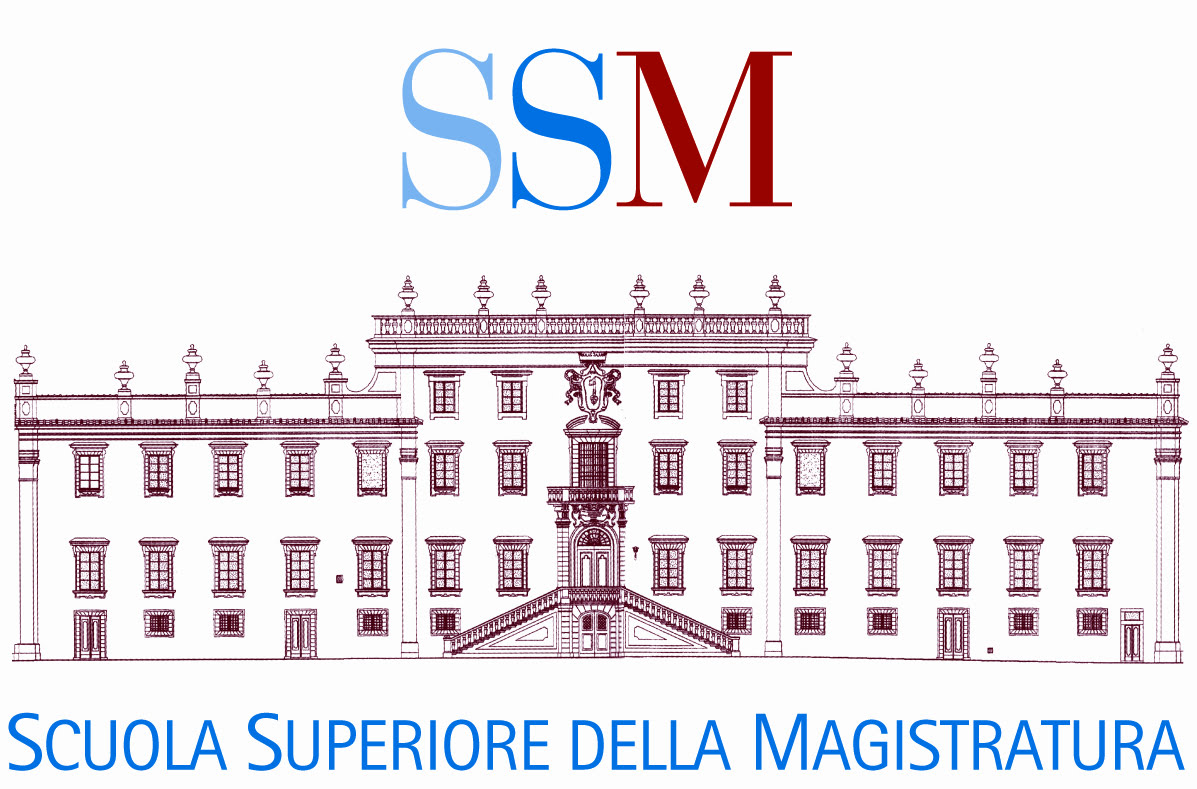School for the Judiciary
In accordance with the principles of judicial independence, freedom of research and teaching, and good administration of justice – as set out in the Constitution of the Republic of Italy – the School for the Judiciary, established by Legislative Decree 30 January 2006, n. 26, ensures the implementation of the right to, and duty of, professional training of members of the judiciary. The School also performs other tasks in the areas of training and research, as provided for by the law and the School’s own charter.
The School is an independent entity with legal personality under public and private law, as well as full capacity vis-à-vis organisational, functioning, management, contractual and accounting aspects of its activity. The charter of the School – which represents the expression of its autonomy – was adopted on February 6, 2012.
The School is the sole agency competent with regard to professional training of the judiciary. It is responsible, in particular, for:
- Organisation of training initiatives for judges and prosecutors and, when required, for other legal practitioners;
- Initial and in-service training of honorary judges and prosecutors;
- Organisation of training courses for judges and prosecutors who apply for the conferral of chief positions in first and second instance courts and prosecution offices;
- Training of judges and prosecutors holding positions as chairs in courts and chambers as well as similar positions in prosecution offices;
- Training of judges and prosecutors serving as trainers;
- Decentralized training activities;
- Cooperating in activities connected with initial training of judges and prosecutors, within the guidelines formulated by the High Council for the Judiciary and taking into account proposals by the local judicial councils;
- Training in Italy, at the request of competent self-government bodies, of foreign judges and prosecutors participating in training initiatives taking place within the European Judicial Training Network, as well as projects of the European Union and other States’ or international institutions, and implementation of programmes of the Ministry of Foreign Affairs as well as coordination of training activities aimed at Italian judges and prosecutors organised by other States or international institutions, targeting the organisation and functioning of the judicial system;
- Partnerships, at the request of competent self-government bodies, in activities relating to the organization and functioning of the judicial system in other countries;
- Conducting training programmes in collaboration with similar structures of foreign States or professional associations;
- Publication of research and studies in the areas relating to training;
- Organisation of activities and cultural exchanges, meetings and research, in relation to training;
- Organisation, on the basis of specific agreements or conventions, of seminars for legal practitioners or young lawyers enrolled in lawyers’ specialisation courses.
In adopting or amending its annual training programme, the School takes account of the guidelines regarding judicial training it receives from the High Council for the Judiciary (CSM) and the Minister of Justice, as well as the proposals it receives from the National Bar Council and the National University Council. To achieve the above goals, the School may conclude agreements or memoranda of understanding with other public or private entities.
The organisation of the School is governed by its charter as well as regulations that the School itself may adopt.
The organs of the School are the Board of Directors, the President and the Secretary General.
The Board of Directors is composed of twelve members: seven of these members are chosen from among judges and prosecutors, both in service and retired; three from among university professors, both in service and retired, and two among lawyers who have practiced for at least ten years. The High Council for the Judiciary appoints six judges and prosecutors and one university professor, the Minister of Justice appoints one judge or prosecutor, two lawyers and two university professors. The members of the Board shall hold office for four years and may not be immediately renewed.
The Secretary General is either a judge or prosecutor or a chief executive within State Ministries.
Contact
School for the Judiciary
-
Via Tronto, 2
00198 Roma
Italy - internazionale@scuolamagistratura.it
- https://ssm-italia.eu/

-
Austria
- Federal Ministry of Justice
-
Belgium
- Judicial Training Institute
-
Bulgaria
- National Institute of Justice
-
Croatia
- Judicial Academy
-
Cyprus
- Judicial Training School
-
Czechia
- Judicial Academy
-
Denmark
- Court Administration
-
Estonia
- Office of the Prosecutor General
- Supreme Court
-
Finland
- National Courts Administration
- National Prosecution Authority
-
France
- National School for the Judiciary
-
Germany
- Federal Ministry of Justice
- Academy of European Law (ERA)
-
Greece
- National School of the Judiciary
-
Hungary
- National Office for the Judiciary
- Office of the Prosecutor General
-
Ireland
- The Judicial Council
-
Italy
- School for the Judiciary
- High Council of the Judiciary
-
Latvia
- Latvian Judicial Training Centre
- Office of the Prosecutor General
-
Lithuania
- National Courts Administration
- Office of the Prosecutor General
-
Luxembourg
- National Council of Justice
-
Malta
- Judicial Studies Committee
-
Netherlands
- Training and Study Centre for the Judiciary
-
Poland
- National School of Judiciary and Public Prosecution
-
Portugal
- Centre for Judicial Studies
-
Romania
- National Institute of Magistracy
-
Slovakia
- Judicial Academy
-
Slovenia
- Judicial Training Centre
-
Spain
- Centre for Legal Studies
- Judicial School
-
Sweden
- Judicial Training Academy
- Swedish Prosecution Authority
